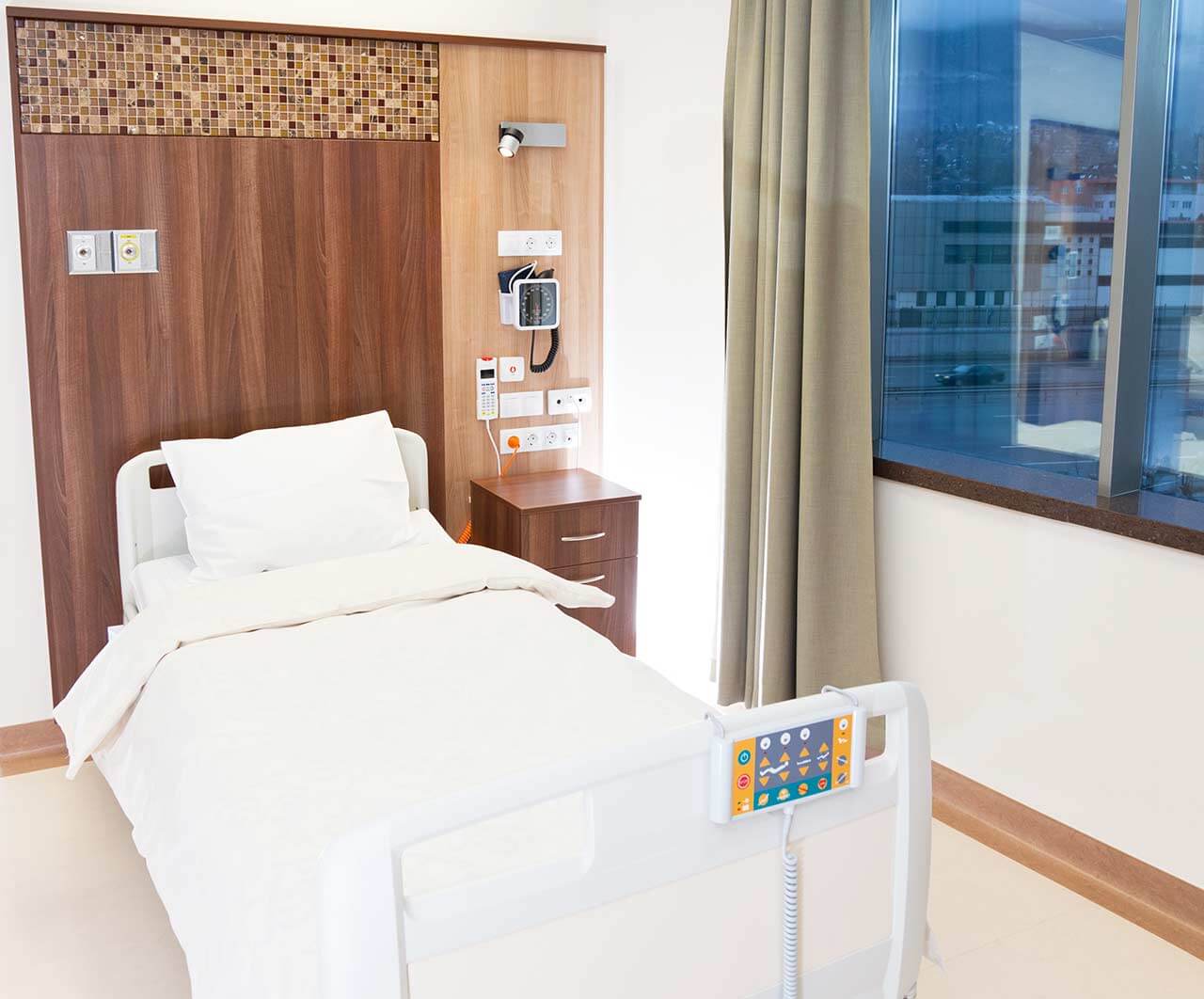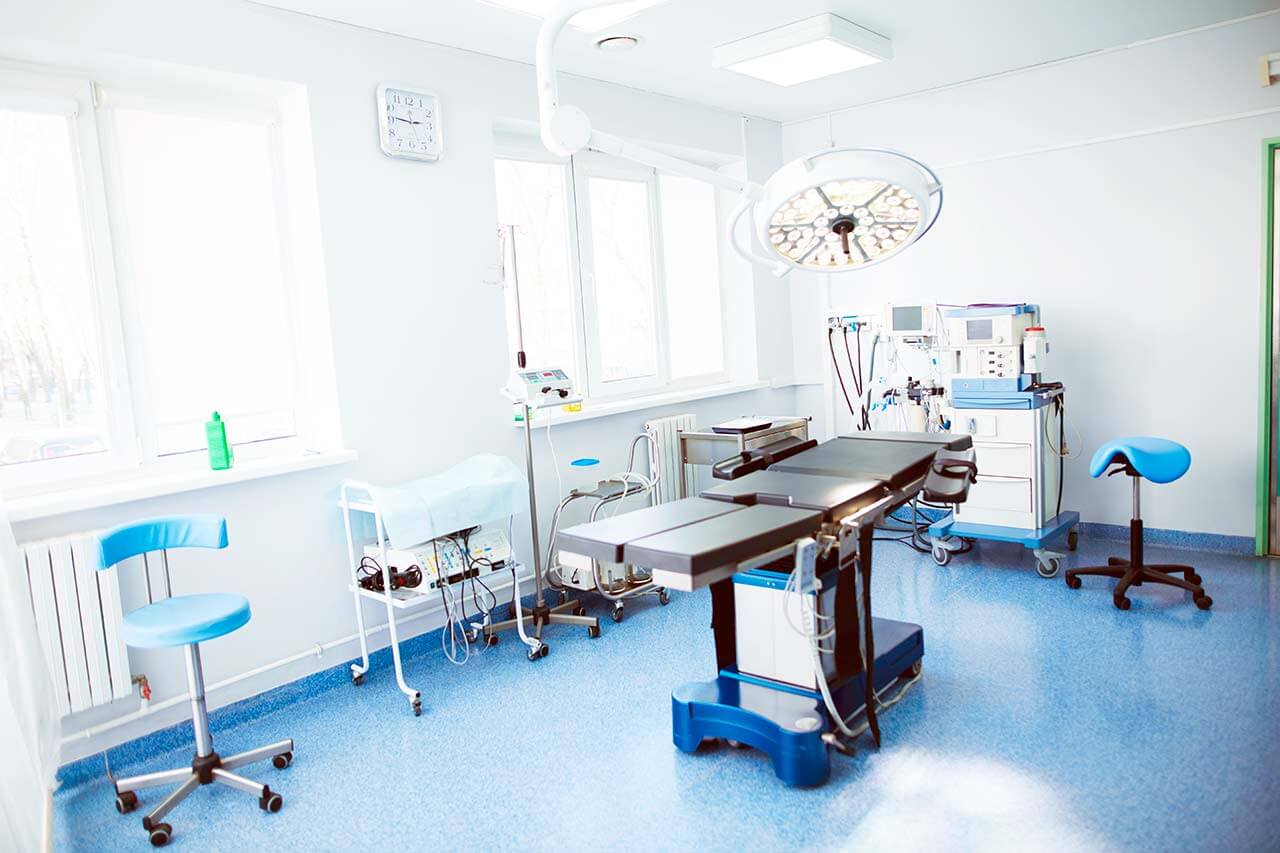
The program includes:
- Initial presentation in the clinic
- clinical history taking
- review of medical records
- physical examination
- urological examination
- laboratory tests:
- complete blood count
- general urine analysis
- biochemical blood test
- inflammation markers (CRP, ESR)
- blood coagulation analysis (aPTT, PT, INR)
- tumor markers, PSA
- ultrasound of pelvic organs (abdominal or through rectum)
- PSMA PET-CT
- nursing services
- consultation of related specialists
- treatment by chief physician and all leading experts
- explanation of individual treatment plan
Required documents
- Medical records
- MRI/CT scan (not older than 3 months)
- Biopsy results (if available)
Service
You may also book:
 BookingHealth Price from:
BookingHealth Price from:
About the department
The Department of Nuclear Medicine at the Medicana International Ankara Hospital provides the full range of diagnostic and therapeutic measures based on the use of various radioisotopes. The department is equipped with such advanced medical devices as PET-CT Discovery IQ, gamma cameras and scintigraphy systems. All the diagnostic and therapeutic procedures comply with the strict international medical protocols. The Chief Physician of the department is Dr. med. Nalan Can.
The doctors of the department widely practice the the use of PET-CT device, which allows them to take pictures of the desired body areas using the "cross-section" method and monitor the processes in the tissues and organs. Thus, the combination of detailed structural images with the images showing the activity of processes in the tissues allows for a detailed information about the localization and activity rates of the pathological area. This method is especially effective for diagnostics, treatment and follow-up examination in oncopathology, cardiac diseases (ischemic heart disease, heart attack) and brain diseases (brain tumors, epileptic seizures).
A distinctive feature of the department is the state-of-art PET-CT Discovery IQ system, which, thanks to a short scan time period, provides the patient with the best possible comfort. Also, the Discovery IQ makes it possible to diagnose and determine the pathologic stage, based on the ability for very detailed imaging. The method is used for the determination of tumor spread in the body after cancer diagnostics and assessment of chemotherapy and/or radiation therapy influence on the oncological process. In addition, the device is effectively used to detect recurrence in the same place of tumor localization or distant metastases after treatment completion.
Another diagnostic and treatment method is a gamma camera, which helps to determine the location and size of tumors in the thyroid gland, spleen, liver, lungs and brain. Scanning with a gamma camera takes only a few minutes.
Also, the department’s scope of tasks includes scintigraphy, which assesses the activity of accumulation of radioactive substances in various organs and tissues of the human body. For example, myocardial perfusion scintigraphy is performed to measure the amount of blood, which flows to the heart muscle in patients with life-threatening heart disease or myocardial infarction.
The service range of the department includes:
- Combined PET-CT method and diagnostics using the state-of-art PET-CT Discovery IQ system for the following pathologies
- Oncological diseases
- Brain diseases
- Head and neck neoplasms
- Esophageal diseases
- Lung diseases
- Colon and rectal diseases
- Pancreatic diseases
- Thyroid diseases
- Cervical diseases
- Lymphomas
- Melanomas
- Epileptic seizures
- PET-CT examination of viable tissue after coronary heart disease, coronary artery bypass grafting and heart attack
- PET-CT differential diagnostics of Alzheimer's disease and dementia
- Diagnostics of tumors of the thyroid gland, spleen, liver, lungs and brain using a gamma camera
- Scintigraphy
- Bone tissue scintigraphy
- Myocardial perfusion scintigraphy
- Lacrimal gland and duct scintigraphy (dacryoscintigraphy)
- Lymphoscintigraphy
- Gastrointestinal scintigraphy
- Parathyroid scintigraphy
- Lymph node mapping or scintigraphy
- Testicular scintigraphy
- Thyroid scintigraphy
- Lung scintigraphy
- Other methods of radioisotope diagnostics and therapy
Photo of the doctor: (c) Medicana Health Group
About hospital
The Medicana International Ankara Hospital is one of the leading medical centers, which belongs to the largest medical network Medicana in Turkey. The hospital incorporates all specialties of the modern medicine under one roof. It particularly focuses on bone marrow transplantation, cardiology, cardiovascular surgery, medical oncology, radiation oncology, CyberKnife treatment, nuclear medicine, kidney transplantation, liver transplantation and IVF services.
With a large total indoor space (about 20,000 sq. km), 215 beds, modern architecture, high-end technology and modern quality management system, the hospital treats both Turkish citizens and many international patients. Every year, more and more patients from Europe, Russia, Northern Africa and Middle East come to Ankara to receive modern medical treatment, which meets the strictest quality standards.
A particular clinical focus is cancer treatment. The hospital has at its disposal state-of-the-art medical technologies, including, multislice CT, PET-CT, MRI ultrasound, LINAC linear accelerators capable of making IMRT, conventional and interventional radiology, nuclear medicine imaging methods and radiation oncology, which allow the physicians of the hospital to provide comprehensive diagnostics and treatment of all oncological diseases.
The hospital has brought together the best medical academic staff in the field of kidney, liver and bone marrow transplantation, etc. All employees of the hospital are constantly looking for new, clinically proven treatments in order to ensure that each patient will receive the best and most appropriate treatment in Ankara.
Photo: (c) depositphotos
Accommodation in hospital
Patients rooms
The patients of the Medicana International Ankara Hospital live in comfortable modern rooms designed in bright colors. A standard room includes an automatically adjustable bed, a bedside table, a wardrobe, a shower, a toilet, and a TV set. There is internet access in the patient rooms. The hospital also provides VIP patient rooms.
Meals and Menus
The patients of the hospital are offered a tasty, balanced three meals a day: breakfast, lunch and dinner. With appropriate indications, there may be provided a dietary or individual menu.
Further details
Standard rooms include:





